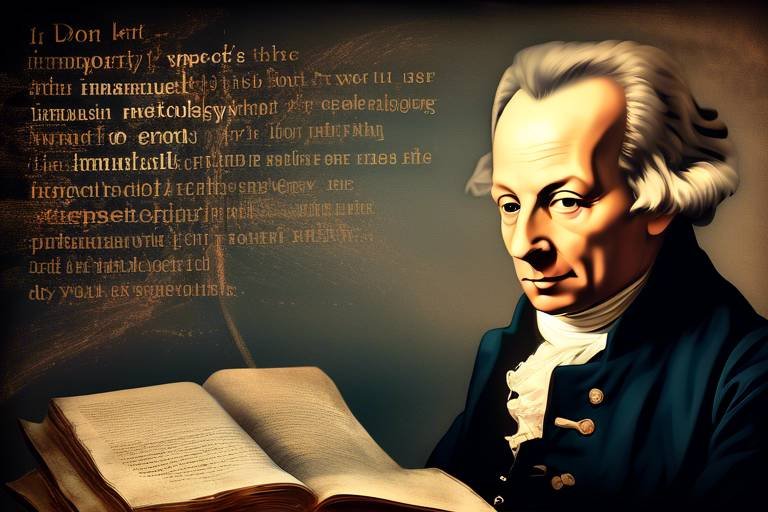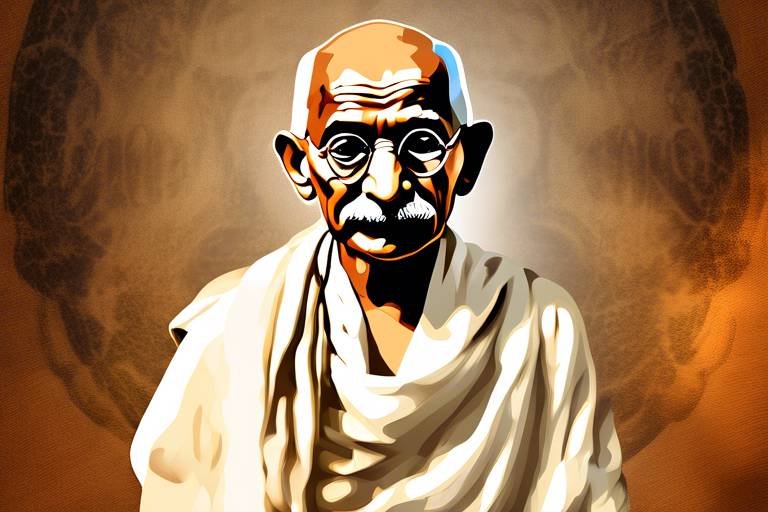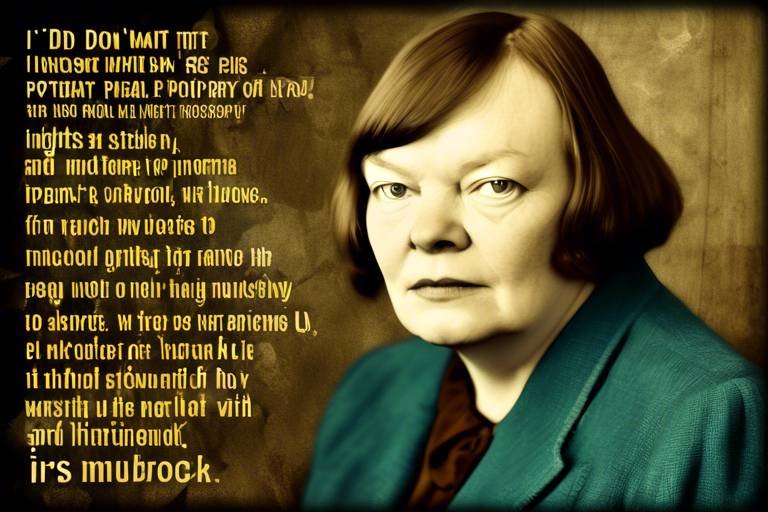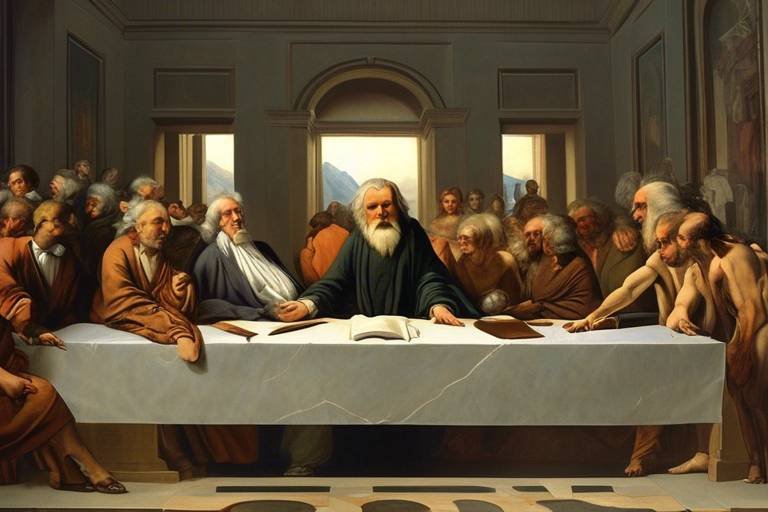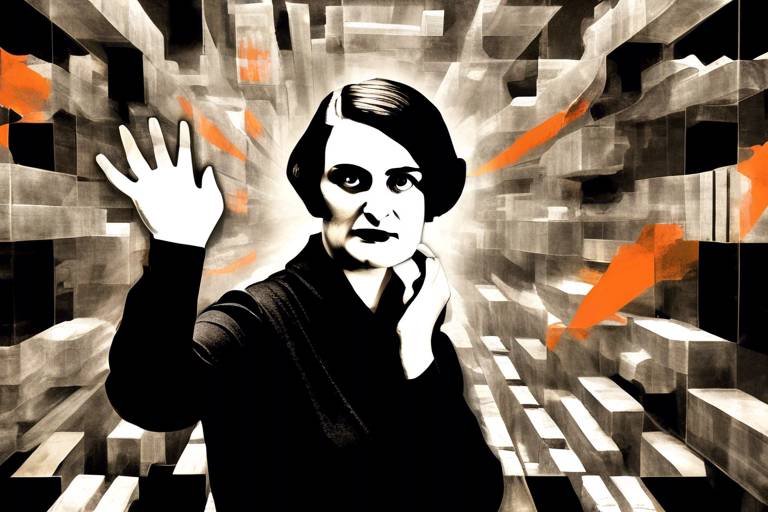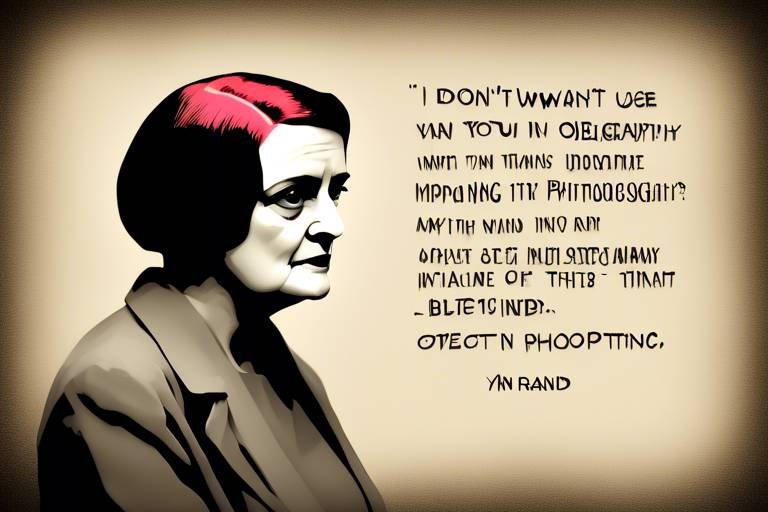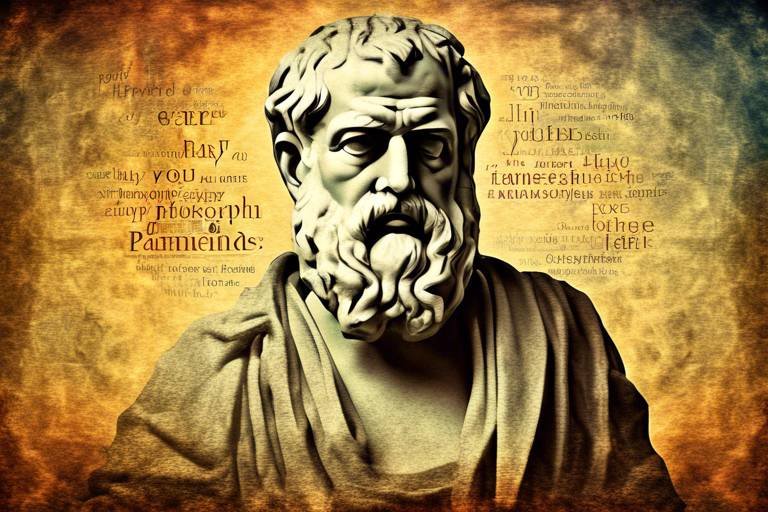Does Thomas Hobbes's Leviathan Still Hold Today?
When we think about the foundations of political philosophy, Thomas Hobbes's Leviathan often comes to mind as a monumental text that has shaped our understanding of governance, human nature, and the intricate web of social contracts. Written in the 17th century, Hobbes's work is not merely a relic of the past; it resonates with the complexities of our modern society. In a world rife with political upheaval, social unrest, and existential threats, one might wonder: does Hobbes's perspective still hold water today?
To answer this question, we must delve into the essence of Hobbes's arguments. At the heart of Leviathan lies the notion that humans, in their natural state, are driven by self-interest and a desire for self-preservation. This bleak view of human nature suggests that without a powerful, centralized authority, society would descend into chaos—what Hobbes famously termed the "war of all against all." In today's context, this idea prompts us to consider the role of government in maintaining order and security. Are we, as a society, willing to surrender certain freedoms for the sake of safety? The ongoing debates surrounding surveillance, law enforcement, and civil liberties echo Hobbes's concerns about the balance between authority and individual rights.
Moreover, Hobbes's concept of the social contract remains a fundamental aspect of political discourse. It invites us to reflect on the agreements we make with our governments and the expectations that arise from these contracts. In contemporary politics, this is particularly relevant as citizens grapple with issues such as government accountability, transparency, and the extent of state power. As we witness movements advocating for social justice and reform, the question arises: are our governments upholding their end of the bargain? Are they truly representing the will of the people, or have they strayed into authoritarianism, a scenario Hobbes warned against?
In examining Hobbes's relevance today, we also encounter the contrasting views of other political philosophers, notably John Locke. While Hobbes paints a rather grim picture of human nature, Locke offers a more optimistic outlook, positing that humans are inherently rational and capable of cooperation. This divergence in thought has significant implications for how we view governance and individual rights in modern times. As we navigate the complexities of today's political landscape, understanding these philosophical foundations can help us make sense of our own beliefs and values.
In conclusion, while Hobbes's Leviathan was penned centuries ago, its core ideas about human nature, governance, and the social contract continue to spark discussion and debate. As we confront the challenges of contemporary society, from political polarization to environmental crises, the questions raised by Hobbes remain relevant. Are we still willing to accept a strong authority to maintain order, or do we strive for a more decentralized, participatory form of governance? The ongoing dialogue around these issues suggests that Hobbes's work will remain a cornerstone of political philosophy for years to come.
- What is the main idea of Hobbes's Leviathan? Hobbes argues that in the state of nature, humans are driven by self-interest, leading to chaos. Thus, a strong centralized authority is necessary to maintain order.
- How does Hobbes's view compare to Locke's? While Hobbes has a pessimistic view of human nature, Locke believes humans are rational and cooperative, advocating for a government that protects individual freedoms.
- Is the social contract still relevant today? Yes, the social contract remains a vital concept, influencing discussions on government accountability, individual rights, and the balance of power in modern political systems.

Leviathan
This article explores the relevance of Thomas Hobbes's in contemporary society, examining its implications on governance, human nature, and social contracts in modern political discourse.
Hobbes's ideas on human nature and the state of nature continue to influence political thought, prompting discussions on authority, power dynamics, and individual rights in today's world.
The concept of the social contract remains a cornerstone of political philosophy, influencing modern governance and the relationship between citizens and the state, as seen in various political systems today.
A comparison of Hobbes's views with John Locke's highlights differing perspectives on human nature, government legitimacy, and individual rights, showcasing the evolution of social contract theory.
Hobbes's depiction of the state of nature as a chaotic and violent realm underscores his argument for a strong, centralized authority to maintain order and prevent conflict.
In contrast, Locke's more optimistic view of the state of nature presents humans as rational and cooperative, advocating for a government that protects individual freedoms and property rights.
Hobbes's ideas can be seen in contemporary discussions about government authority, especially in times of crisis, raising questions about the balance between security and individual liberties.
While Hobbes's theories have shaped political thought, they have also faced criticism for their pessimistic view of human nature and the potential for authoritarianism in governance.
Feminist theorists challenge Hobbes's exclusion of women from his social contract, arguing for a more inclusive understanding of governance that recognizes diverse perspectives and experiences.
Modern critiques also address Hobbes's neglect of environmental issues, emphasizing the need for a social contract that incorporates ecological sustainability and the rights of future generations.
Thomas Hobbes's , published in 1651, is not just a book; it is a monumental piece of political philosophy that continues to resonate today. At its core, Hobbes argues that in the absence of a strong central authority, human life would be "solitary, poor, nasty, brutish, and short." This stark portrayal of human nature—where fear and self-interest reign supreme—serves as a foundation for his advocacy of absolute sovereignty. But how relevant are these concepts in our modern landscape?
In today's world, we often find ourselves grappling with the same fundamental questions Hobbes posed centuries ago. For instance, in times of social unrest or political instability, do we prioritize security over freedom? Hobbes would argue that a powerful state is necessary to maintain order and prevent chaos. This raises a critical dialogue about the balance between the authority of the state and the rights of individuals. Are we willing to surrender some of our liberties for the sake of safety? It's a question that echoes through history and remains pertinent in our current political climate.
Moreover, Hobbes's notion of the social contract—an implicit agreement among individuals to form a society and abide by its rules—still serves as a framework for understanding modern governance. Today, we see varying interpretations of this concept across different political systems. For instance, in democratic societies, citizens often engage in a social contract that emphasizes rights and responsibilities, whereas in more authoritarian regimes, the contract may lean heavily towards obedience and control.
To illustrate this, consider the following table that compares Hobbes's views with contemporary governance structures:
| Aspect | Hobbes's View | Modern Governance |
|---|---|---|
| Human Nature | Pessimistic; self-interested | Varied; includes both altruism and self-interest |
| Authority | Absolute Sovereignty | Democratic, Authoritarian, etc. |
| Social Contract | Imposed by the sovereign | Agreed upon by the governed |
In conclusion, while Hobbes's may have been penned in a different era, its themes and questions remain strikingly relevant. The balance between authority and individual rights, the nature of human beings, and the necessity of governance continue to shape our political discourse today.
- What is the main argument of Hobbes's Leviathan? Hobbes argues for a strong central authority to prevent chaos and maintain order in society.
- How does Hobbes view human nature? Hobbes has a pessimistic view, seeing humans as inherently self-interested and prone to conflict.
- What is the social contract according to Hobbes? It is an implicit agreement among individuals to form a society and abide by its rules, often enforced by a sovereign authority.
- How does Hobbes's philosophy influence modern governance? His ideas prompt ongoing discussions about the balance between security and individual liberties in contemporary political systems.

in contemporary society, examining its implications on governance, human nature, and social contracts in modern political discourse.
This article explores the relevance of Thomas Hobbes's Leviathan in contemporary society, examining its implications on governance, human nature, and social contracts in modern political discourse.
Hobbes's ideas on human nature and the state of nature continue to influence political thought, prompting discussions on authority, power dynamics, and individual rights in today's world.
The concept of the social contract remains a cornerstone of political philosophy, influencing modern governance and the relationship between citizens and the state, as seen in various political systems today.
A comparison of Hobbes's views with John Locke's highlights differing perspectives on human nature, government legitimacy, and individual rights, showcasing the evolution of social contract theory.
Hobbes's depiction of the state of nature as a chaotic and violent realm underscores his argument for a strong, centralized authority to maintain order and prevent conflict.
In contrast, Locke's more optimistic view of the state of nature presents humans as rational and cooperative, advocating for a government that protects individual freedoms and property rights.
Hobbes's ideas can be seen in contemporary discussions about government authority, especially in times of crisis, raising questions about the balance between security and individual liberties.
While Hobbes's theories have shaped political thought, they have also faced criticism for their pessimistic view of human nature and the potential for authoritarianism in governance.
Feminist theorists challenge Hobbes's exclusion of women from his social contract, arguing for a more inclusive understanding of governance that recognizes diverse perspectives and experiences.
Modern critiques also address Hobbes's neglect of environmental issues, emphasizing the need for a social contract that incorporates ecological sustainability and the rights of future generations.
In today's world, the echoes of Hobbes's Leviathan resonate through the corridors of governance and political discourse. His bleak portrayal of human nature—where life is described as "solitary, poor, nasty, brutish, and short"—serves as a lens through which we can examine the complexities of modern society. The implications of his work are profound, especially in how we understand authority and the mechanisms of power that govern our lives.
Consider the ongoing debates around government surveillance and individual privacy. Hobbes's argument for a powerful sovereign to maintain order raises essential questions: How much authority should a government wield in the name of security? Are we, as citizens, willing to trade some of our freedoms for the promise of safety? These inquiries are not merely academic; they play out in real time as we navigate issues like national security, public health, and civil liberties.
Moreover, the concept of the social contract is more relevant than ever. In a world where political polarization is rampant, understanding the implicit agreements between citizens and their governments can illuminate why certain policies are accepted or rejected. For instance, the recent global movements advocating for racial and social justice challenge us to rethink the terms of our social contracts. Are they inclusive? Do they adequately represent the voices of marginalized communities? Hobbes's framework invites us to scrutinize these contracts and demand a government that not only maintains order but also reflects the will of the people.
Additionally, Hobbes's views on human nature prompt us to reflect on our collective behavior. Are we inherently self-interested, or can we foster a sense of community and cooperation? This dichotomy influences everything from economic policies to social welfare programs. The challenge lies in finding a balance between Hobbesian realism and the optimistic perspectives offered by other philosophers like Locke, who believed in the potential for human collaboration.
Ultimately, Hobbes's Leviathan serves as a critical touchstone for understanding the dynamics of power, governance, and human nature in contemporary society. Whether we view his theories as a cautionary tale or a foundational pillar of political philosophy, they undeniably shape our discussions about the future of governance and the social contracts we forge.
- What is the main idea of Hobbes's Leviathan? Hobbes's Leviathan argues for a strong, centralized authority to prevent chaos and maintain order in society.
- How does Hobbes's view of human nature differ from Locke's? Hobbes sees humans as inherently self-interested and competitive, while Locke views them as rational and cooperative.
- What is the significance of the social contract in modern governance? The social contract serves as a framework for understanding the relationship between citizens and the state, influencing political legitimacy and authority.
- Are there critiques of Hobbes’s theories? Yes, critiques include his pessimistic view of human nature, exclusion of women from the social contract, and neglect of environmental issues.
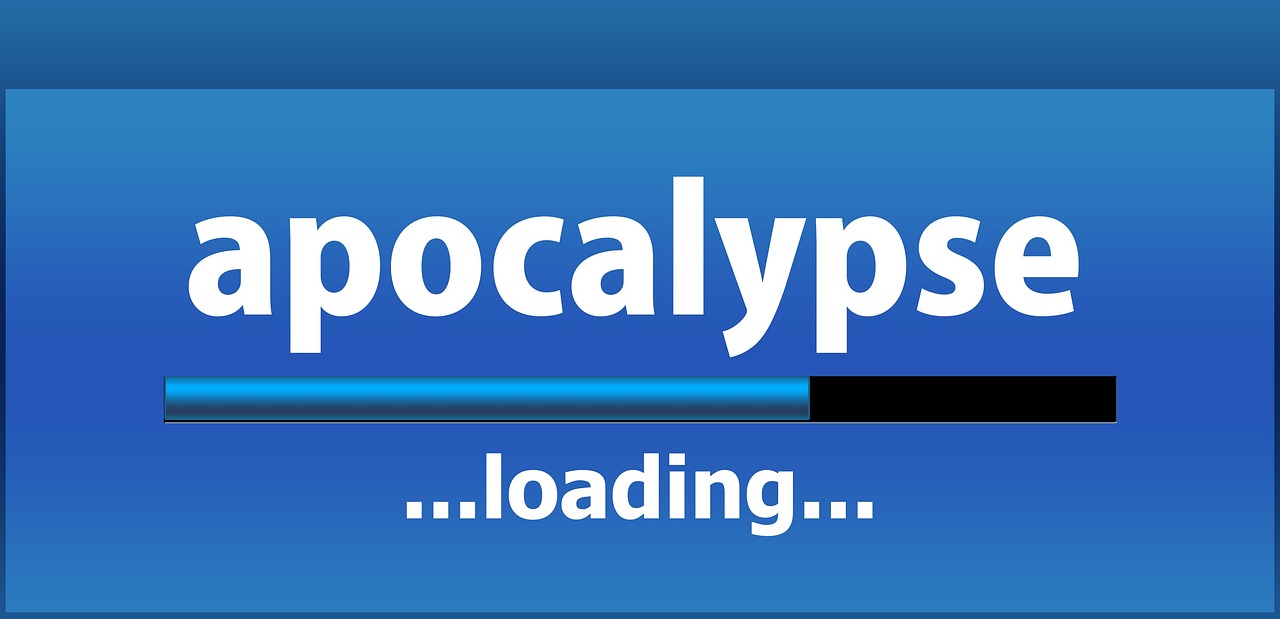
The Relevance of Hobbesian Philosophy
When we dive into the depths of Thomas Hobbes's philosophy, particularly his seminal work, Leviathan, we uncover a treasure trove of insights that resonate profoundly in today's world. Hobbes paints a picture of human nature that is often viewed as bleak and self-serving, suggesting that in the absence of a powerful authority, life would be "solitary, poor, nasty, brutish, and short." This perspective raises essential questions about the role of government and the nature of human interactions in our modern society.
In a world where political unrest and social upheaval are rampant, Hobbes's theories prompt us to consider the delicate balance between authority and individual rights. His idea that a strong, centralized authority is necessary to maintain peace and prevent chaos is particularly relevant when we witness the fragility of social order during crises. For instance, whether it's a pandemic or civil unrest, the call for decisive leadership often echoes Hobbes's assertion that without a powerful sovereign, society risks descending into disorder.
Moreover, Hobbes's insights into power dynamics and human behavior continue to influence political discourse. Many contemporary theorists draw upon his ideas to analyze current events, examining how authority is established and maintained. For example, consider the following key aspects of Hobbesian philosophy that remain pertinent today:
- Human Nature: Hobbes's view that humans are inherently self-interested prompts us to question the motivations behind political actions and policies.
- Authority and Legitimacy: His belief in the necessity of a social contract to legitimize authority raises discussions about the consent of the governed in modern democracies.
- Security vs. Liberty: The ongoing debate about the balance between national security and individual freedoms can be traced back to Hobbes's arguments for a strong sovereign.
As we navigate the complexities of today's political landscape, Hobbes's philosophy serves as a lens through which we can critically assess the effectiveness of our governments. Are they fulfilling their role as protectors of peace and order? Or are they overstepping their bounds, infringing upon the rights of individuals? These questions are not just academic; they are vital for understanding our relationship with the state and the implications of our social contracts.
In essence, Hobbes's ideas challenge us to reflect on the nature of authority and governance in a world where the stakes are incredibly high. As we grapple with issues of power, individual rights, and the role of government, the relevance of Hobbesian philosophy becomes increasingly clear. His work compels us to engage in meaningful discussions about how we can create a society that balances the need for order with the imperative of respecting individual freedoms.

Social Contract Theory
The concept of serves as a cornerstone in the realm of political philosophy, shaping our understanding of governance and the intricate relationships between individuals and the state. At its core, the social contract posits that individuals consent, either explicitly or implicitly, to surrender certain freedoms and submit to the authority of a governing body in exchange for protection of their remaining rights. This idea is not just a relic of the past; it resonates deeply in contemporary political discourse, influencing how we view authority, rights, and responsibilities.
In today’s world, the social contract can be observed in various forms across different political systems. From democracies to authoritarian regimes, the underlying principles of this theory manifest in the way governments operate and interact with their citizens. For instance, in a democratic society, the social contract is often reflected in the constitution, which outlines the rights of the citizens and the limitations of governmental power. This relationship is a delicate balance, where citizens expect protection and services from the state while also demanding accountability and respect for their individual rights.
However, the social contract is not without its complexities and challenges. In times of crisis, such as during a pandemic or national emergency, the balance between security and individual liberties often comes under scrutiny. Citizens may find themselves grappling with the question: How much freedom are we willing to sacrifice for the sake of security? This dilemma highlights the evolving nature of the social contract and its implications for modern governance. The state may enact measures that restrict personal freedoms in the name of public safety, leading to debates about the legitimacy of such actions and the extent to which they adhere to the original principles of the social contract.
Moreover, the social contract is not a one-size-fits-all agreement. It varies significantly across cultures and societies, influenced by historical contexts and social norms. For example, in some countries, the social contract may prioritize collective well-being over individual rights, while in others, individual liberties may take precedence. This diversity underscores the importance of understanding the social contract as a dynamic and context-dependent concept.
To further illustrate the significance of social contract theory in modern governance, consider the following table that outlines key elements of social contracts in different political systems:
| Political System | Key Elements of Social Contract |
|---|---|
| Democracy | Individual rights, accountability, public participation |
| Authoritarianism | Centralized power, limited freedoms, control over dissent |
| Socialism | Collective ownership, social welfare, economic equality |
| Libertarianism | Maximum individual freedom, minimal state intervention |
As we delve deeper into the implications of social contract theory, it's essential to recognize that this framework not only shapes our understanding of governance but also invites us to reflect on our roles as citizens. Are we merely passive recipients of government services, or do we actively engage in shaping the social contract to reflect our values and aspirations? The answer to this question is crucial as we navigate the complexities of modern society, where the interplay between authority and individual rights continues to evolve.
- What is social contract theory? Social contract theory is a philosophical concept that explains the relationship between individuals and the governing body, suggesting that individuals consent to surrender some freedoms for protection of their remaining rights.
- How does social contract theory apply today? It influences modern governance by shaping the expectations citizens have of their governments, especially regarding rights, responsibilities, and the balance between security and freedom.
- What are the criticisms of social contract theory? Critics argue that it can overlook marginalized groups and may not account for the complexities of modern society, including issues of equity and justice.

Hobbes vs. Locke
When diving into the philosophical waters of social contract theory, the contrast between Thomas Hobbes and John Locke is as striking as night and day. Hobbes, with his grim view of humanity, paints a picture of a world where life in the state of nature is "solitary, poor, nasty, brutish, and short." This perspective leads him to advocate for a powerful, centralized authority to keep chaos at bay. On the other hand, Locke approaches human nature with a more optimistic lens, arguing that individuals are inherently rational and capable of cooperation. He believes that the role of government should be to protect the natural rights of life, liberty, and property.
This fundamental difference in their views on human nature significantly shapes their ideas about governance. Hobbes argues that in order to escape the anarchy of the state of nature, individuals must surrender their rights to a sovereign authority, a concept he famously encapsulates in his work, Leviathan. In contrast, Locke insists that the social contract is an agreement among free individuals to form a government that serves the public good, thus maintaining their rights rather than stripping them away.
The implications of these contrasting philosophies extend into various aspects of modern governance. For instance, Hobbes's advocacy for a strong, often authoritarian government raises questions about the balance of power and individual freedoms, especially in times of crisis. In contrast, Locke's emphasis on consent and the right to revolt against unjust authority resonates in contemporary discussions about democracy and civil rights.
| Aspect | Hobbes | Locke |
|---|---|---|
| View of Human Nature | Pessimistic: Humans are self-interested and violent | Optimistic: Humans are rational and cooperative |
| State of Nature | Chaotic and dangerous | Peaceful and governed by natural law |
| Role of Government | Absolute authority to prevent chaos | Protect individual rights and property |
| Right to Revolt | Not justified; must obey sovereign | Justified against oppressive government |
Ultimately, the debate between Hobbes and Locke serves as a foundational element in our understanding of political philosophy. Their differing views not only influence theoretical discussions but also have real-world implications for how societies are structured and governed. As we navigate the complexities of modern political landscapes, the legacies of these two thinkers continue to inform our understanding of authority, rights, and the social contract.

State of Nature: Hobbes' View
When we delve into Thomas Hobbes's concept of the state of nature, we encounter a rather bleak and tumultuous vision of human existence. According to Hobbes, in the absence of a governing authority, life would be characterized by chaos and violence, famously described by him as "solitary, poor, nasty, brutish, and short." This perspective paints a picture of humanity as inherently self-interested and competitive, driven by a primal instinct for survival. Without a powerful central authority to impose order, Hobbes argues that individuals would be locked in a constant struggle for resources, leading to an inevitable state of war.
In Hobbes's view, the state of nature is not just a theoretical construct; it serves as a crucial backdrop for understanding the necessity of government. He believed that individuals, in their quest for peace and security, would willingly surrender some of their freedoms to a sovereign power. This social contract, as Hobbes termed it, is a foundational element of his political philosophy. It reflects a pragmatic approach to governance, emphasizing that the fear of violence and disorder compels individuals to prioritize security over personal liberties.
To illustrate Hobbes's perspective further, consider the following key points:
- Human Nature: Hobbes viewed humans as naturally inclined towards conflict, suggesting that without societal constraints, individuals would act out of self-preservation and greed.
- The Role of Authority: A strong, centralized authority is essential to prevent chaos and maintain social order. This authority must be absolute to effectively curb humanity's baser instincts.
- Security vs. Freedom: Hobbes believed that in exchange for security, individuals must relinquish certain freedoms, a trade-off that remains a contentious issue in modern governance.
Hobbes's depiction of the state of nature raises profound questions about the nature of authority and the role of government in our lives. It compels us to reflect on whether absolute power is indeed necessary to ensure peace and stability. In a world that often grapples with conflict and disorder, Hobbes's arguments resonate, prompting us to examine the delicate balance between security and individual rights. His insights continue to be relevant, particularly in discussions surrounding governmental authority during crises, as societies seek to navigate the fine line between maintaining order and preserving personal freedoms.
- What is Hobbes's view of human nature? Hobbes believed that humans are inherently self-interested and competitive, leading to conflict in the absence of authority.
- Why did Hobbes advocate for a strong central authority? He argued that a strong authority is necessary to prevent chaos and maintain social order, as individuals would otherwise be in a constant state of war.
- How does Hobbes's social contract differ from that of Locke? While Hobbes's social contract emphasizes surrendering freedoms for security, Locke's perspective advocates for a government that protects individual rights and freedoms.

State of Nature: Locke's Perspective
When we dive into John Locke's perspective on the state of nature, we find ourselves in a vastly different realm compared to Hobbes's bleak portrayal. Locke painted a picture of human beings as inherently rational and cooperative, suggesting that in their natural state, individuals are capable of living harmoniously without the need for a strong, centralized authority to impose order. This view posits that humans are not just self-interested creatures but are also social beings who can work together for mutual benefit.
Locke believed that in the state of nature, individuals possess natural rights, such as the rights to life, liberty, and property. These rights are not granted by any government but are inherent to every person. He argued that the state of nature is governed by the law of nature, which dictates that individuals should not harm one another in their life, health, liberty, or possessions. This fundamental principle fosters a sense of responsibility and encourages people to respect each other's rights.
Unlike Hobbes, who viewed life in the state of nature as "solitary, poor, nasty, brutish, and short," Locke saw it as a state of relative peace and equality. However, he acknowledged that conflicts could arise when individuals encroach upon each other's rights. To mitigate these conflicts, Locke proposed the establishment of a government through a social contract, where individuals consent to form a civil society that protects their natural rights. This government, in Locke's view, derives its legitimacy from the consent of the governed, and its primary purpose is to safeguard individual freedoms.
Locke's optimistic outlook on human nature has profound implications for modern governance. His ideas laid the groundwork for democratic principles, emphasizing that the authority of the government should be limited and accountable to the people. In contrast to Hobbes's emphasis on absolute power, Locke's vision promotes a system where the government exists to serve the interests of its citizens. This perspective is particularly relevant today, as we grapple with issues of government overreach and the protection of individual liberties.
To summarize Locke's perspective on the state of nature, consider the following key points:
- Human Nature: Inherently rational and cooperative.
- Natural Rights: Life, liberty, and property are fundamental and inalienable.
- Law of Nature: Governs behavior and ensures mutual respect among individuals.
- Social Contract: Government is formed by the consent of the governed to protect natural rights.
- Democratic Principles: Emphasizes limited government and accountability.
In conclusion, Locke's view of the state of nature serves as a counterpoint to Hobbes's theories, illuminating a path towards a more optimistic and democratic vision of governance. By advocating for a government that protects individual freedoms and promotes cooperation, Locke's philosophy continues to resonate in contemporary discussions about the role of authority and the rights of citizens.
- What is the main difference between Hobbes and Locke's views on the state of nature?
Hobbes viewed the state of nature as chaotic and violent, while Locke saw it as a place of relative peace where individuals respect each other's rights. - What are natural rights according to Locke?
Natural rights are inherent rights that every individual possesses, including the rights to life, liberty, and property. - How does Locke's social contract differ from Hobbes's?
Locke's social contract is based on the consent of the governed and aims to protect individual rights, whereas Hobbes advocated for a strong, centralized authority to maintain order.
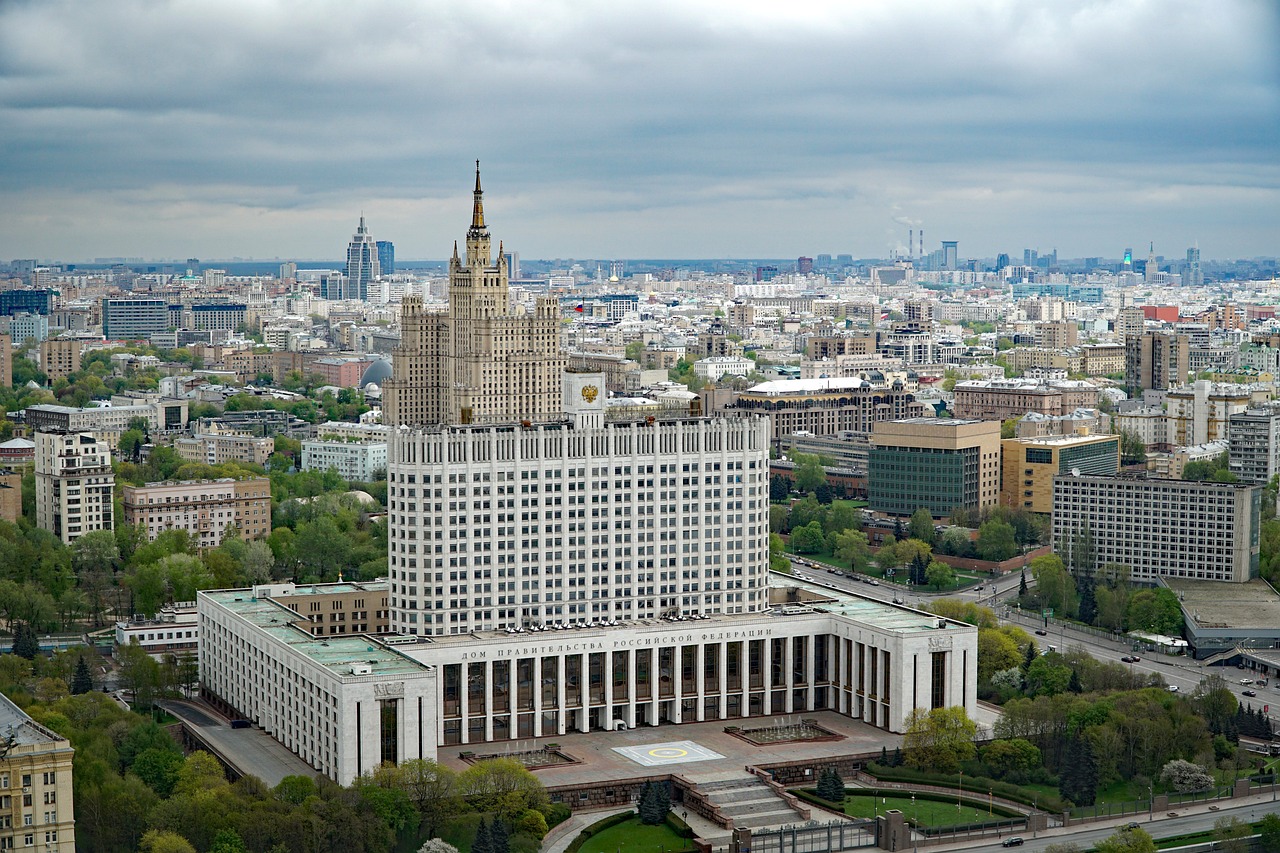
Modern Applications of Leviathan
When we dive into the modern applications of Hobbes's Leviathan, it’s like opening a treasure chest of insights that resonate with today’s political climate. Hobbes's ideas about governance, authority, and human nature are not just relics of the past; they are alive and kicking in contemporary discussions about the role of the state. In times of crisis, such as during pandemics or national emergencies, the balance between individual liberties and government authority becomes a hot topic. Are we willing to surrender some of our freedoms for the sake of security? This question echoes Hobbes's assertion that a strong, centralized authority is necessary to maintain order and prevent chaos.
Consider how governments around the world have responded to crises—often by tightening their grip on power. Hobbes would argue that this is a necessary evil to prevent societal collapse. For instance, during the COVID-19 pandemic, many nations implemented strict measures, from lockdowns to surveillance, to ensure public safety. Critics, however, raised eyebrows, questioning whether such measures infringe on personal freedoms. This tug-of-war between security and liberty is a modern reflection of Hobbesian thought, illustrating how his ideas remain relevant.
Moreover, Hobbes’s emphasis on the social contract can be seen in how citizens today engage with their governments. The expectation that the state will provide safety and order in exchange for obedience is a fundamental principle that still holds sway. Citizens are more likely to accept restrictions on their freedoms if they believe that their government is acting in their best interest. This dynamic can be summarized in the following table:
| Aspect | Hobbesian View | Modern Application |
|---|---|---|
| Authority | Centralized power to maintain order | Government enforcement during crises |
| Individual Rights | Subordinate to the collective good | Debate over civil liberties vs. public safety |
| Social Contract | Mutual agreement for protection | Expectation of government accountability |
As we navigate through modern political landscapes, it's essential to recognize that Hobbes's insights provide a framework for understanding the complexities of governance today. His ideas challenge us to think critically about the nature of authority and the responsibilities of both the state and its citizens. Are we, as a society, willing to trade off our freedoms for the illusion of security? Or can we find a middle ground that respects individual rights while ensuring collective safety? These questions are not just philosophical musings; they are pressing issues that require our attention.
In conclusion, the applications of Hobbes's Leviathan in modern society serve as a reminder that the struggle between individual liberties and the need for order is timeless. As we continue to grapple with these challenges, Hobbes's thought remains a crucial part of our political discourse, urging us to reflect on the nature of power and the social contract that binds us together.
- What is the main idea of Hobbes's Leviathan? Hobbes's Leviathan argues for a strong central authority to prevent chaos and maintain social order.
- How does Hobbes's view of human nature differ from that of Locke? Hobbes views humans as inherently selfish and violent, while Locke believes they are rational and cooperative.
- Why is the social contract important in modern governance? The social contract is crucial as it outlines the relationship between citizens and the state, emphasizing mutual obligations.

Critiques of Hobbes’s Ideas
While Thomas Hobbes's theories in Leviathan have undeniably shaped political thought, they are not without their critics. Many scholars and philosophers have raised concerns about his rather pessimistic view of human nature and the implications this has for governance. Hobbes painted a picture of humanity as inherently self-interested, leading to a justification for a strong, centralized authority. But is this really an accurate reflection of human behavior? Critics argue that such a bleak perspective can breed authoritarianism, as it suggests that only a powerful ruler can maintain order. This raises the question: Is fear really the best motivator for societal cohesion?
One significant area of critique comes from feminist theorists, who challenge Hobbes's exclusion of women from his social contract. They argue that his framework fails to account for the diverse experiences and perspectives that women bring to governance. By neglecting half of the population, Hobbes's model becomes incomplete. Feminists advocate for a more inclusive understanding of governance that recognizes the importance of gender dynamics in political discourse. They ask: How can a social contract be truly valid if it doesn't represent all members of society?
Furthermore, modern critiques extend to the environmental realm. Hobbes's theories largely ignore ecological considerations, which are increasingly vital in today's discussions about governance and societal well-being. In a world grappling with climate change and environmental degradation, many argue that the social contract must evolve to include ecological sustainability and the rights of future generations. This raises another critical point: Can we afford to maintain a social contract that disregards the planet?
In summary, while Hobbes's insights into human nature and authority have laid important groundwork for political theory, they also invite rigorous scrutiny. Critics highlight the need for a more nuanced approach that considers gender, environmental issues, and the multifaceted nature of human interactions. As we navigate the complexities of modern governance, these critiques remind us that political philosophy must adapt to reflect the diverse realities of our society.
- What are the main critiques of Hobbes's view of human nature?
Many argue that Hobbes's pessimistic outlook can lead to authoritarianism and does not accurately reflect the cooperative aspects of human behavior. - How do feminist theorists critique Hobbes's social contract?
Feminists argue that Hobbes's exclusion of women undermines the validity of his social contract, advocating for a more inclusive framework. - Why is environmental sustainability a concern in critiques of Hobbes?
Critics emphasize that Hobbes's theories do not account for ecological issues, which are crucial in contemporary political discourse.

Feminist Critiques
Feminist theorists have long challenged the foundational premises of Thomas Hobbes's Leviathan, particularly his exclusion of women from the social contract. At its core, Hobbes's political philosophy presents a rather monolithic view of human nature, one that fails to account for the diverse experiences and perspectives of women. This exclusion raises significant questions about the legitimacy and applicability of his theories in contemporary society. Feminists argue that by sidelining women, Hobbes not only limits the understanding of power dynamics but also perpetuates a narrow, patriarchal interpretation of governance.
Furthermore, feminist critiques highlight how Hobbes's portrayal of the state of nature—as a brutal, chaotic space—reinforces traditional gender roles that cast women as passive victims rather than active participants in societal structures. This notion of women as inherently vulnerable overlooks their agency and contributions to social order. In this sense, feminists advocate for a reimagined social contract that acknowledges the voices and rights of all individuals, regardless of gender. They argue that a truly just society must integrate the experiences of women, thereby enriching the discourse on governance and authority.
To illustrate the shortcomings of Hobbes's framework, feminist theorists often point to the following key areas:
- Exclusion from the Social Contract: Hobbes's theories are predicated on a contract that does not include women, raising questions about whose rights and interests are being represented.
- Power Dynamics: The Hobbesian view tends to reinforce existing power structures, which often marginalize women's voices in political discussions.
- Agency and Autonomy: Feminists argue that Hobbes's depiction of women as passive participants undermines their agency and ability to influence societal norms and governance.
In response to these critiques, many contemporary feminist theorists advocate for a revised social contract that not only includes women but also emphasizes the importance of intersectionality. This approach recognizes that different identities—such as race, class, and sexual orientation—intersect to shape individual experiences and access to power. By incorporating these diverse perspectives, the social contract can evolve into a more inclusive framework that genuinely reflects the complexities of human society.
Ultimately, the feminist critique of Hobbes's Leviathan serves as a powerful reminder of the need for inclusivity in political philosophy. As society continues to grapple with issues of equality and representation, revisiting Hobbes's ideas through a feminist lens can foster a more nuanced understanding of governance and human relationships, paving the way for a more equitable future.
- What is the main argument of feminist critiques against Hobbes?
Feminist critiques argue that Hobbes's exclusion of women from the social contract limits the understanding of governance and power dynamics, perpetuating patriarchal structures. - How do feminist theorists propose to revise the social contract?
They advocate for a more inclusive social contract that recognizes the voices and rights of women and considers intersectionality in shaping governance. - What impact does Hobbes's view of the state of nature have on gender roles?
Hobbes's depiction reinforces traditional gender roles, portraying women as passive victims rather than active participants in societal structures.

Environmental Considerations
As we navigate the complexities of the modern world, it becomes increasingly clear that Thomas Hobbes's theories, while groundbreaking in their time, require a fresh lens to address contemporary challenges. One of the most pressing issues today is the environment. Hobbes's social contract, which primarily focuses on human governance and authority, largely overlooks the intricate relationship between humans and the natural world. This omission raises critical questions: How do we integrate environmental sustainability into the framework of governance? What responsibilities do we owe to future generations?
In essence, Hobbes's view of the social contract was predicated on the idea of self-preservation and the necessity of a powerful sovereign to maintain order. However, in a world increasingly affected by climate change, resource depletion, and ecological degradation, this perspective feels outdated. The social contract must evolve to include not only the rights of individuals but also the rights of the environment. This evolution is crucial for fostering a sustainable future.
To illustrate this point, consider the following aspects of how environmental considerations can be integrated into modern interpretations of Hobbesian thought:
- Interconnectedness: The recognition that human actions have far-reaching consequences on the environment highlights the need for a collective responsibility that transcends individual rights.
- Future Generations: A revised social contract should incorporate the rights of future generations, ensuring that they inherit a livable planet.
- Ecological Governance: The establishment of governance structures that prioritize ecological health alongside human welfare can lead to more sustainable decision-making.
Moreover, the rise of environmental movements and the increasing urgency of climate action reflect a societal shift towards recognizing the importance of integrating ecological considerations into governance. Activists and scholars alike argue for a more inclusive social contract that encompasses the rights of nature, advocating for a legal framework that recognizes ecosystems as entities deserving protection.
In response to these challenges, some political theorists propose a new social contract that aligns closely with Hobbes's original ideas but expands the scope to include environmental ethics. This approach not only honors Hobbes's insights into human nature and the necessity of authority but also acknowledges the pressing need for sustainable governance. By doing so, we can create a framework that balances individual rights with collective responsibilities, paving the way for a future where both humanity and the planet can thrive.
- How does Hobbes's view of the social contract relate to environmental issues?
Hobbes's social contract focuses on human governance and authority, but it neglects the relationship between humans and the environment. This gap highlights the need for a revised social contract that incorporates ecological sustainability. - What are the implications of including environmental considerations in governance?
Incorporating environmental considerations into governance can lead to more sustainable decision-making, recognizing the interconnectedness of human actions and ecological health. - Can Hobbes's theories still be relevant in modern discussions about the environment?
Yes, Hobbes's theories can be adapted to address modern environmental challenges by expanding the social contract to include the rights of nature and future generations.
Frequently Asked Questions
- What is the main idea of Hobbes's Leviathan?
Hobbes's Leviathan primarily argues for a strong, centralized authority to maintain order in society. He believes that in the absence of such authority, human life would be chaotic and violent, leading to a "war of all against all."
- How does Hobbes's view of human nature differ from Locke's?
Hobbes views human nature as inherently selfish and prone to conflict, whereas Locke sees humans as rational and capable of cooperation. This fundamental difference shapes their respective theories on governance and the social contract.
- Why is the social contract theory important today?
The social contract theory is crucial as it lays the foundation for modern governance. It helps explain the relationship between citizens and the state, emphasizing the need for mutual agreement on rights and responsibilities.
- What are some modern applications of Hobbes's ideas?
Hobbes's ideas are relevant in contemporary discussions about government authority, especially during crises like pandemics or national emergencies. They raise important questions about the balance between security measures and individual freedoms.
- What critiques exist against Hobbes's philosophy?
Critiques of Hobbes's philosophy often focus on his pessimistic view of human nature and the potential for authoritarian governance. Critics argue that his ideas can justify oppressive regimes under the guise of maintaining order.
- How do feminist theorists critique Hobbes's social contract?
Feminist theorists challenge Hobbes's exclusion of women from the social contract, arguing that a more inclusive approach is necessary. They advocate for recognizing diverse perspectives and experiences in political discourse.
- What environmental considerations are raised in modern critiques of Hobbes?
Modern critiques highlight Hobbes's neglect of environmental issues, calling for a social contract that incorporates ecological sustainability and the rights of future generations. This reflects a growing awareness of our responsibilities to the planet.


